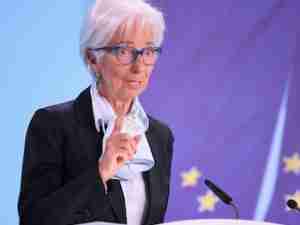End of Iran Sanctions Signals Tougher Times for India’s UCO
By: Pradipta Mukherjee and Anto Antony | Sep 20 2016 at 01:00 AM | International Trade
Many banks around the world are gearing up for new business with Iran after years of punishing sanctions were lifted in January. Not so the state-owned UCO Bank Ltd., which is forecasting lower profit after losing its privileged position as the only Indian bank involved in financing the country’s oil imports from the Middle Eastern nation.
After sanctions intended to punish Iran for its nuclear program were removed, the pool of zero-interest funds which Indian refiners have placed with the Kolkata-based bank has started to dwindle, according to UCO Bank’s Executive Director Charan Singh. With other Indian banks jumping in to the business of financing Iranian oil imports, the cheap money is likely to fall further.
“This was a zero-cost fund and now that it’s coming down, it will affect the bank’s profitability,” Singh said in an interview at his office earlier this month. “We have already taken a profit hit in the June quarter, and we will take a further profit hit going forward.”
After the U.S. and the European Union intensified sanctions, India was permitted to keep buying Iranian oil after agreeing to reduce its purchases. Iran was India’s sixth largest supplier in the fiscal year to March 31, behind Saudi Arabia, Iraq, Nigeria, Venezuela and the United Arab Emirates, according to government data.
The government appointed UCO Bank to handle the oil trade, which took place in rupees or euros, because dollar trades couldn’t be cleared through the U.S. banking system. The bank was chosen because of its limited international presence, which made it less vulnerable to any repercussions from its involvement in trade with Iran.
U.S. Branches
Large state-owned institutions such as State Bank of India, Bank of Baroda and ICICI Bank Ltd. have branches in the U.S., data compiled by the Reserve Bank of India shows.
While the sanctions were in force, India developed a mechanism whereby UCO Bank was allowed to accept up to 45 percent of refiners’ payments in rupees as deposits, before the funds were transferred to Iran. Now that other banks are able to get involved in financing oil trade with Iran, the pool of rupee funds has dwindled to 60 billion rupees ($895 million) as of September, less than half the 150 billion rupees in June 2015, Singh said.
Dwindling zero-cost deposits along with rising bad loans have compressed UCO Bank’s net interest margin, the difference between the rates it garners on loans and its funding costs. The margin fell to 1.84 percent as of June 30 from 2.31 percent in the year earlier period, exchange filings show.
Shares of UCO bank fell 0.3 percent to 38.80 rupees at 10:26 a.m. in Mumbai on Tuesday, extending losses for the year to 15 percent. The Nifty PSU Bank Index, a gauge of 12 state-run lenders, was up 0.1 percent in the morning.
Seeking Deposits
The bank reported a loss of 4.4 billion rupees in the three months to June 30, compared with a 2.6 billion-rupee profit a year earlier, according to the filings.
Singh said UCO Bank is trying to find other sources of low-cost deposits by focusing on opening more checking accounts for shopkeepers and salaried workers. The lender’s average cost of funds was around 6 percent as of September, Singh added.
Most sanctions on Iran were removed after inspectors certified it had curtailed its nuclear program as promised under a 2015 agreement with world powers. Since then, the country has raised crude production to a four-year high and is hoping to draw investment from major oil companies such as Italy’s Eni SpA and France’s Total SA.

